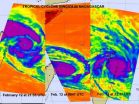(Press-News.org) People make purchasing decisions by choosing between alternatives or by rejecting certain options. But a new study in the Journal of Consumer Research finds that focusing on ruling out an option can lead consumers to reverse their preferences.
"Consider the decision to purchase an iPhone or a Blackberry," write authors Juliano Laran (University of Miami) and Keith Wilcox (Babson College). "If a consumer prefers a business phone, a choice task would lead her to purchase a Blackberry. In this research we demonstrate that rejecting alternatives makes consumers more likely to select preference-inconsistent options. Thus, if a consumer prefers a business phone, a rejection task would lead her to purchase an iPhone."
Why does this happen? When consumers reject alternatives, they need to decide which alternative they do not want, so they focus on options that are less preferred in order to assess if they should reject those options. This shift of focus makes them more likely to notice appealing features.
"Such situations are very common in marketing. Consumers may want a nice apartment but still want to save money; they may want a fast car but still care about safety; they may want healthy food, but still desire tasty food," the authors write. Along that line, even though a consumer may prefer a business phone, she is more likely to purchase the iPhone when she "rejects" it because the process of rejecting increases her focus on the appealing nonbusiness features of the iPhone.
In one study, participants who said they would prefer an apartment closer to nightlife to a less-expensive one further from nightlife were told to select an apartment to "reject." "Simply instructing them to decide which one they would like to 'reject' makes them more likely to choose the less-expensive apartment," the authors write. And when they were primed to prefer the less-expensive apartment, participants selected the apartment closer to nightlife.
"Regardless of whether participants prefer the apartment closer to nightlife or the less-expensive apartment when they choose, having them reject reverses preference," the authors explain.
###
Juliano Laran and Keith Wilcox. "Choice, Rejection, and Elaboration on Preference-Inconsistent Alternatives." Journal of Consumer Research: August 2011 (published online February 1, 2011). Further information: http://ejcr.org.
Consumer beware: Rejecting an option may make you more likely to choose it later
2011-02-15
ELSE PRESS RELEASES FROM THIS DATE:
Few women seek help for sexual issues after cancer treatment, but many want it
2011-02-15
Many women who survive breast and gynecologic cancers want medical help for their sexual issues, but most do not get it. A survey of hundreds of cancer survivors, published online in the journal Cancer, confirms that more than forty percent want medical attention for their sexual health needs.
"Some women have the courage to raise sexual concerns with their doctor, although repeated studies show they prefer the doctor to initiate the discussion," said Stacy Tessler Lindau, MD, associate professor of obstetrics and gynecology at the University of Chicago Medical Center ...
World phosphorous use crosses critical threshold
2011-02-15
MADISON — Recalculating the global use of phosphorous, a fertilizer linchpin of modern agriculture, a team of researchers warns that the world's stocks may soon be in short supply and that overuse in the industrialized world has become a leading cause of the pollution of lakes, rivers and streams.
Writing in the Feb. 14 edition of the journal Environmental Research Letters, Stephen Carpenter of the University of Wisconsin-Madison and Elena Bennett of McGill University report that the human use of phosphorous, primarily in the industrialized world, is causing the widespread ...
George Clooney or Saddam Hussein? Why do consumers pay for celebrity possessions?
2011-02-15
A new study in the Journal of Consumer Research sheds some light into why someone would pay $48,875 for a tape measure that had belonged to Jackie Kennedy or $3,300 for Bernie Madoff's footstool.
"Why do people pay money for celebrity possessions?" write authors George E. Newman (Yale University), Gil Diesendruck (Bar-Ilan University), and Paul Bloom (Yale University). "Celebrity items often have little functional value. And because the objects themselves tend to be relatively common artifacts (clothing, furniture, etc.) they are often physically indistinguishable from ...
How do consumers react when friends provide poor service in a business arrangement?
2011-02-15
When your friend is a service provider, things can get complicated. According to a new study in the Journal of Consumer Research, a problem can lead to feelings of betrayal or empathy, depending on the circumstances.
"Imagine that you are planning to celebrate your birthday at your favorite restaurant. You ask the owner to hold a sea-view table for you and he indicates that he will try to do so. When you arrive at the restaurant, however, he tells you that all of the sea-view tables have been taken. What would your reaction be?" write authors Lisa C. Wan (Lingnan University), ...
NASA satellites see Cyclone Bingiza move across northern Madagascar
2011-02-15
Tropical Cyclone Bingiza has made landfall in northeastern Madagascar, and NASA's Aqua and Terra satellites captured visible infrared satellite data of the storm's progression over the weekend, revealing the power behind the storm.
The movement and landfall of Tropical Cyclone Bingiza was captured over the weekend of Feb. 12-13 in a series of infrared satellite imagery from the Atmospheric Infrared Sounder (AIRS) instrument that flies aboard NASA's Aqua satellite. Aqua and Terra provided companion visible images to the infrared images of Bingiza's track across northern ...
Heart patients should be referred to Cardiac Rehabilitation before leaving hospital
2011-02-15
Healthcare practitioners can increase the number of patients with heart disease referred to a cardiac rehabilitation program by 40 per cent, helping them to reduce their risk of dying and improve their quality of life, say researchers at the Peter Munk Cardiac Centre.
Previous studies, including one by Taylor in 2004, indicate that participating in cardiac rehab after a cardiac illness, such as a heart attack, can reduce the risk of death by approximately 25 per cent, a reduction similar to that of other standard therapies such as cholesterol-lowering medications (statins) ...
Earliest humans not so different from us, research suggests
2011-02-15
That human evolution follows a progressive trajectory is one of the most deeply-entrenched assumptions about our species. This assumption is often expressed in popular media by showing cavemen speaking in grunts and monosyllables (the GEICO Cavemen being a notable exception). But is this assumption correct? Were the earliest humans significantly different from us?
In a paper published in the latest issue of Current Anthropology, archaeologist John Shea (Stony Brook University) shows they were not.
The problem, Shea argues, is that archaeologists have been focusing ...
Rising seas will affect major US coastal cities by 2100
2011-02-15
Rising sea levels could threaten an average of 9 percent of the land within 180 U.S. coastal cities by 2100, according to new research led by University of Arizona scientists.
The Gulf and southern Atlantic coasts will be particularly hard hit. Miami, New Orleans, Tampa, Fla., and Virginia Beach, Va. could lose more than 10 percent of their land area by 2100.
The research is the first analysis of vulnerability to sea-level rise that includes every U.S. coastal city in the lower 48 with a population of 50,000 or more.
The latest scientific projections indicate that ...
Monitoring killer mice from space
2011-02-15
SALT LAKE CITY, Feb. 15, 2011 – The risk of deadly hantavirus outbreaks in people can be predicted months ahead of time by using satellite images to monitor surges in vegetation that boost mouse populations, a University of Utah study says. The method also might forecast outbreaks of other rodent-borne illnesses worldwide.
"It's a way to remotely track a disease without having to go out and trap animals all the time," says Denise Dearing, professor of biology at the University of Utah and co-author of the study published online Wednesday, Feb. 16, in the journal Global ...
Breast cancer screening with MRI benefits women with radiation therapy history
2011-02-15
OAK BROOK, Ill. – Breast cancer screening with MRI can detect invasive cancers missed on mammography in women who've undergone chest irradiation for other diseases, according to a new study published online and in the April print edition of Radiology.
Women who receive radiation therapy as children and young adults for diseases like Hodgkin's lymphoma face a significantly greater risk of breast cancer later in life. The incidence of breast cancer increases approximately eight years after chest irradiation, and 13 percent to 20 percent of women treated with moderate- to ...


